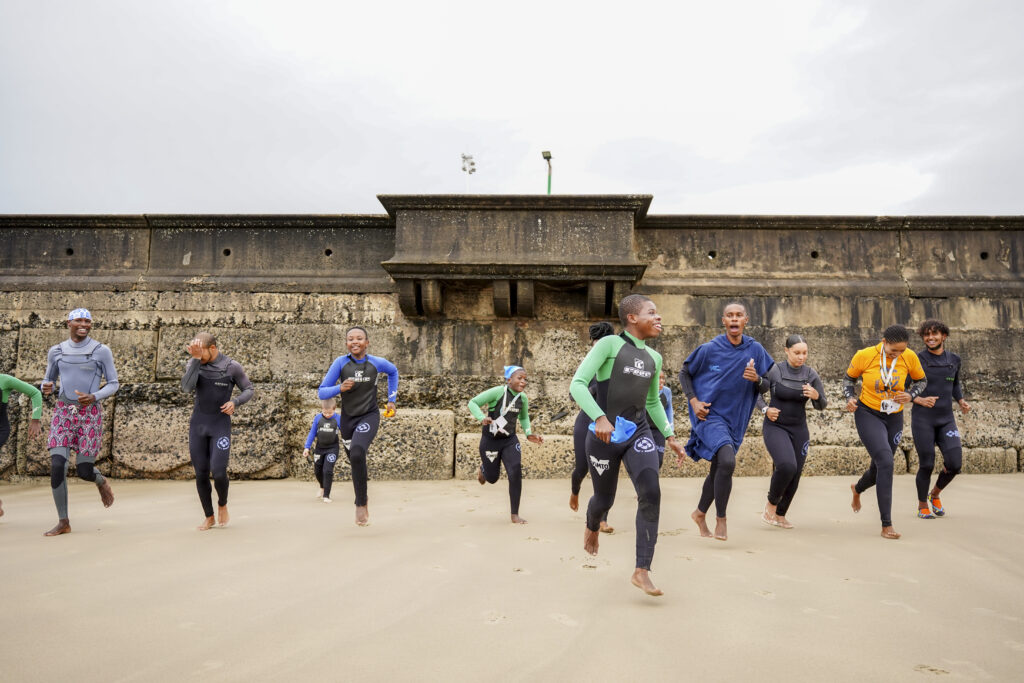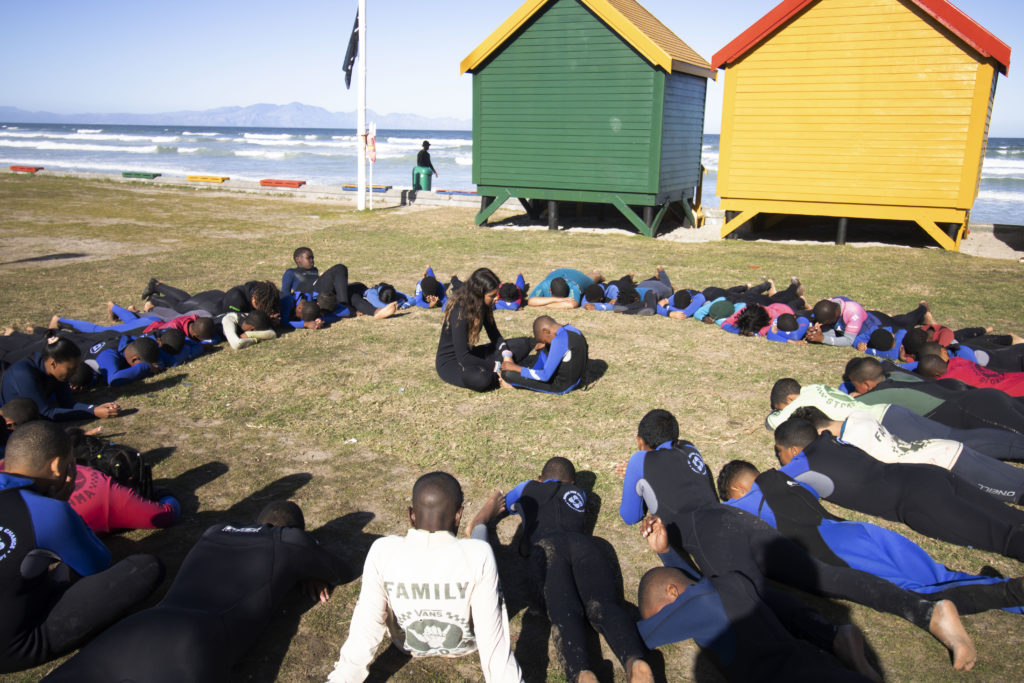Harper Sliders Heroine: Surf Coach Alice Wesseh-Toe
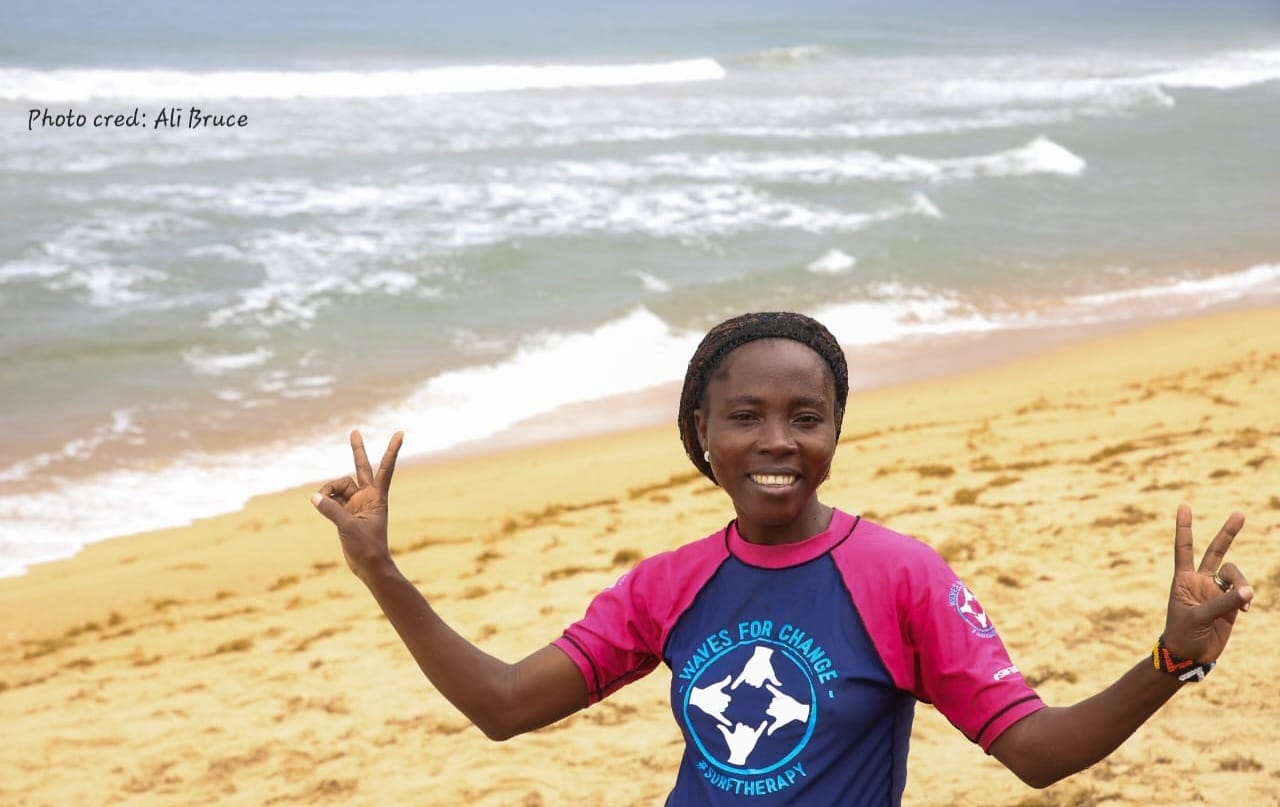
Under an ancient almond tree shading a beach in the university town of Harper, Liberia, Alice Wesseh (surf coach and mentor) is changing the surf narrative from the beach up and breaking the norms, one wave at a time.
Alice’s Journey
Alice is a surf therapy mentor for Waves for Change, Liberia. Her journey as a surfer and surf coach is mirrored in the growth of surfing in her community. Since the start of the Waves for Change Liberia surf therapy service in 2017, the local surf population has bloomed from none to over 150 surfers – nearly all of whom under the age of 25, and nearly all of whom have been mentored and guided by Alice.
My surfing experience all started with Waves for Change in 2017. That was the first time I saw and touched a surfboard” shares Alice. “I was invited to South Africa, and there, with the encouragement of my coach, I rode my first ever wave. It was when I rode that wave that I realized the impact of surfing. You know when you surf, all you think of is how to catch and enjoy the wave, nothing else. And with each wave, I feel like a conqueror and overcomer.
It was this feeling of overcoming – a feeling greater than simply the stoke of riding a wave – that inspires Alice to be a surf therapy mentor: using the ancient art of riding waves (a sport with a long history in Africa – first reports of surfing in current Ghana date to the 1640s), in a supportive social culture and structure, to boost health and wellbeing in her community.
The Setting
Harper sits on the southern coast of Liberia, on a natural inlet bordered by endless stretches of golden beaches to the north and south, and the jungle inland. The beach Alice runs her sessions from is shaded by the almond tree which for two years was the official home of surf therapy in Harper, until the Harper Sliders Clubhouse was built with the support of Mami Wata. Across the river mouth, a shallow reef provides perfect rolling left-handers for the surfers to ride in parallel with motorised canoes ferry local fishermen to and from the deep. The location is significant in Liberian history: the beach was the site of some of the first “settler” groups of freed American slaves arriving in West Africa in 1833. Over the next almost 200 years, the community was exposed to generations of trauma throughout the two Liberian Civil Wars and Ebola pandemic; now, the beach is a space for healing, health, and hope for the future.
Right from the start of her life as a surfer, Alice knew that surfing was about so much more than physical activity.
Before travelling to South Africa, I had had two deaths in my family. When I got to South Africa, I received a call from home that had me worried and stressed up. The day I rode that first wave, after missing out on the first few, I felt that every situation was under my control; that I could conquer any situation and achieve anything. With that feeling, I forgot everything and enjoyed myself so much that I didn’t want to leave the water. Before Waves for Change, and before I built my courage, the water was a no-go zone for me. Now here I am: one of the first surf coaches, and surf therapy mentors, in my community ever.
Being a female surf therapy coach in a community where surfing is relatively unknown, mental health is often a taboo topic, and sport belongs in the realm of men is truly original.
Being a surf coach in my community is venturing into the unexpected. It is entering into a world that belongs only to men. It’s like you’re riding on a boat full of men where you are the only female on board. People can’t imagine it. They say, “Are you also a surf coach? You got nerves!”. They see it as something difficult, and so think it can only be done by men.
Challenging Boundaries
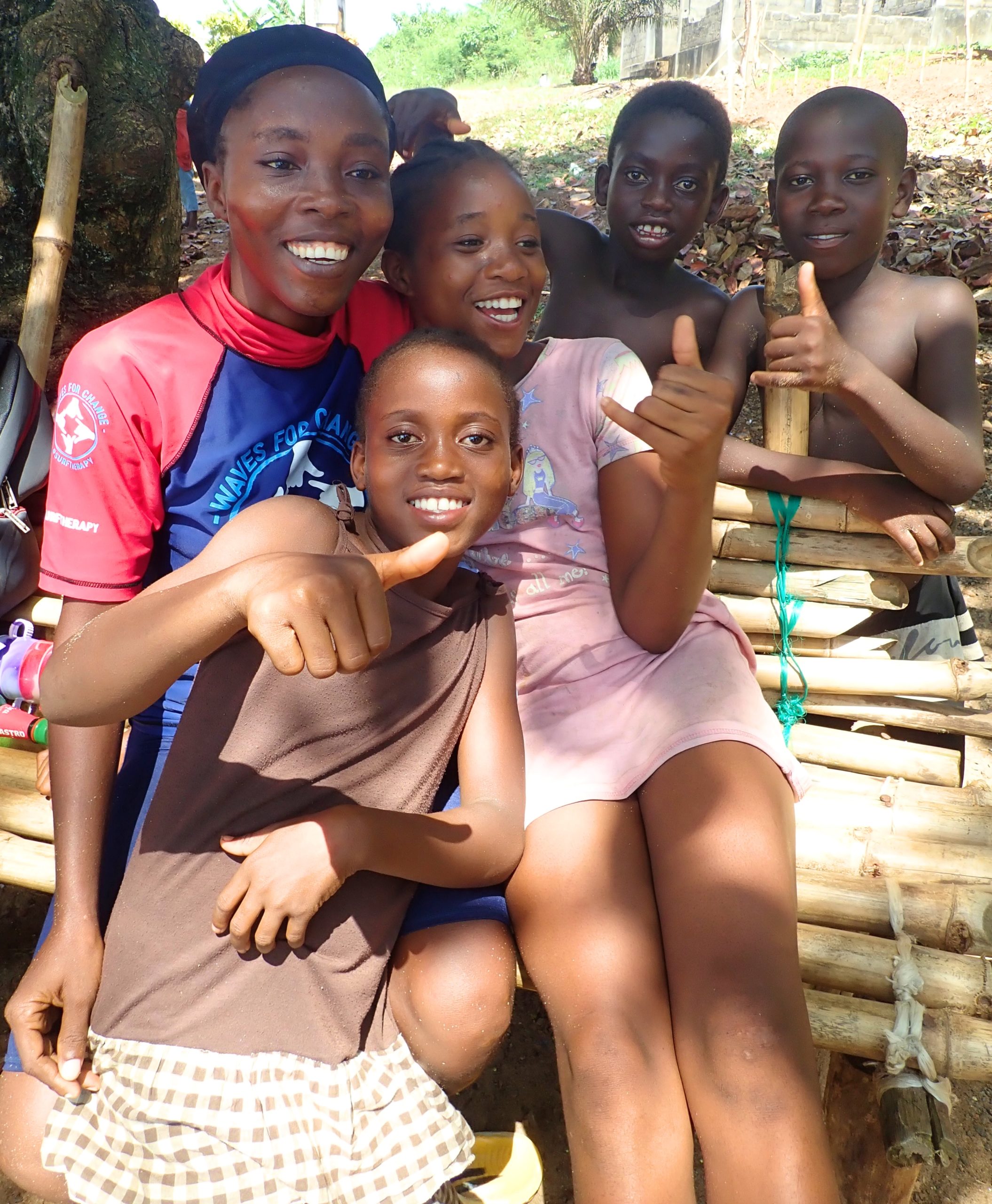
“Surfing was also not a common sport in my community,” shares Alice. Because of this, the local surf heroes aren’t your stereotypical blonde male: the surfers the community sees and are inspired by are all local Waves for Change Liberia surfers, and they have taken full ownership of the surfer identity. “(Surf media) is also not popular or common here. They don’t see the stereotype. They just see us.” And Alice is making sure that “us” includes the local female population.
Young girls in Harper often take on adult roles early in life, including being self-supported teen mothers and breadwinners for their families, which leaves little time for their own joy and health. For Alice, surfing offers a chance to boost their wellbeing and shift their mindset, while also changing how others see and value them, impacting their lives not only at the beach, but beyond it.
Surfing changed how others perceived them (the girls), and how they perceived themselves” shares Alice. “Surfing has helped the girls realize that they could do whatever boys can do. They have come to understand that they can achieve anything. They have a renewed mind with positive perceptions of themselves, knowing they have value and that they can and should bring out and appreciate their value.
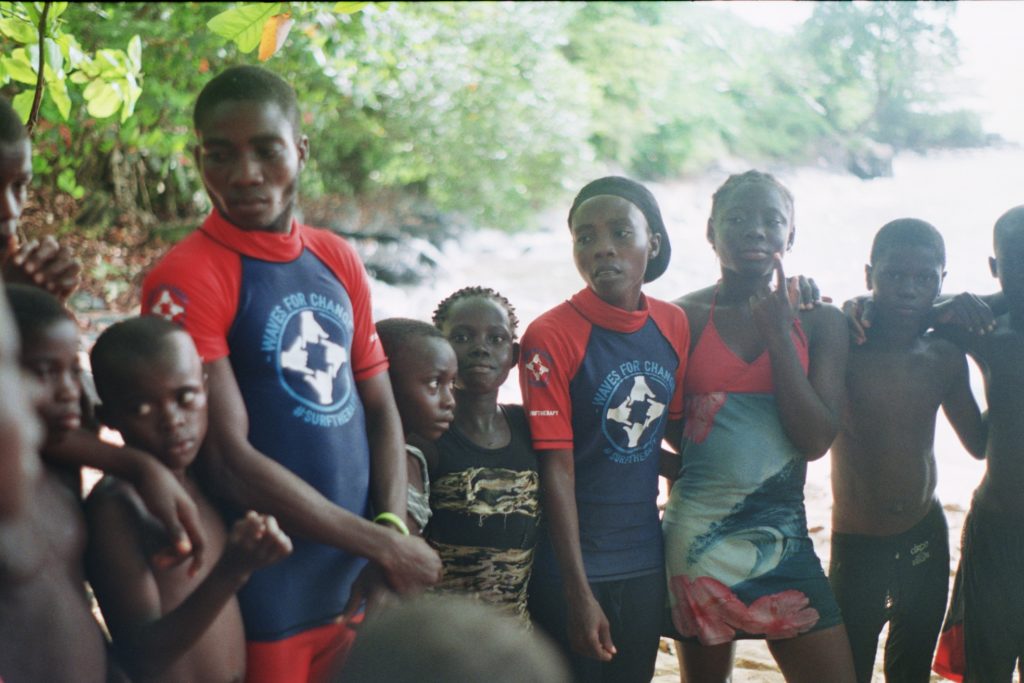
Alice is stoked to no longer be the only female surfer riding Harper’s waves. “I feel so happy that I make an impact. I help make their dreams of being surfers come true. I see myself in them. I see the results of my efforts and it brings me joy knowing they have something to be proud of for themselves. That makes us heroines.”
Alice’s journey continues
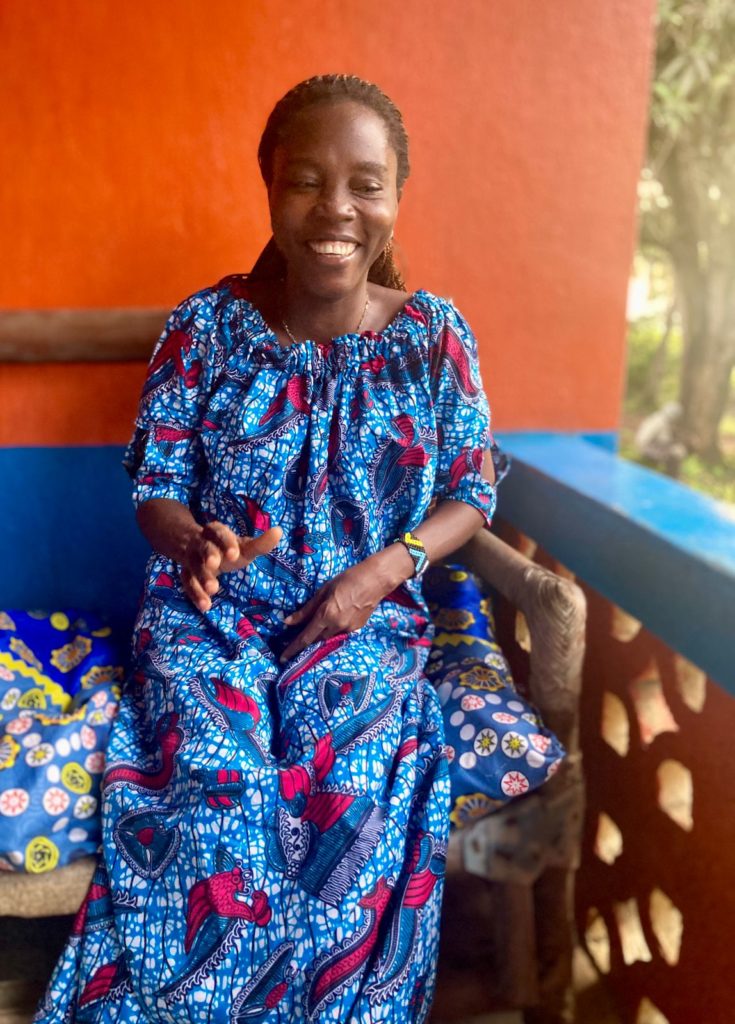
Alice’s role includes coach training, ensuring that the team are providing a high-quality service to their surfers. Recently, Alice was invited by Universal Outreach Foundation and Mami Wata to share her knowledge, skills, and experience with 15 passionate local surfers in Robertsport, Liberia to build their own surf therapy service using the W4C 5 Pillar method – something Alice knows deep in her bones.
We are helping them to help themselves, and to bring up others. I’m not just impacting these 15 people; I’m impacting others – their family, their friends, their surf community, their future participants – through them. It feels amazing!
exclaims Alice with her characteristic enthusiasm and bright smile (which is considered one of the many reasons children attend the W4C programme so regularly).
For Alice, the workshop is an important step in changing the perceptions and approaches to mental health in Liberia.
I want people to know that mental health is everybody’s business. People in the community think it means just people “being crazy” in the streets. Some parents think their job is just to give the child food, not feed the mind. I know now, mental health is all about the wellness of your mind as well as your body. It’s about having a strong inside world, that supports you. We can build those strong inside worlds by caring for each other, giving each other understanding and letting each other know we all have value and meaning.
This is just the first step for Alice, who’s commitment to building strong minds and strong communities runs as deep as her local pointbreak runs far.
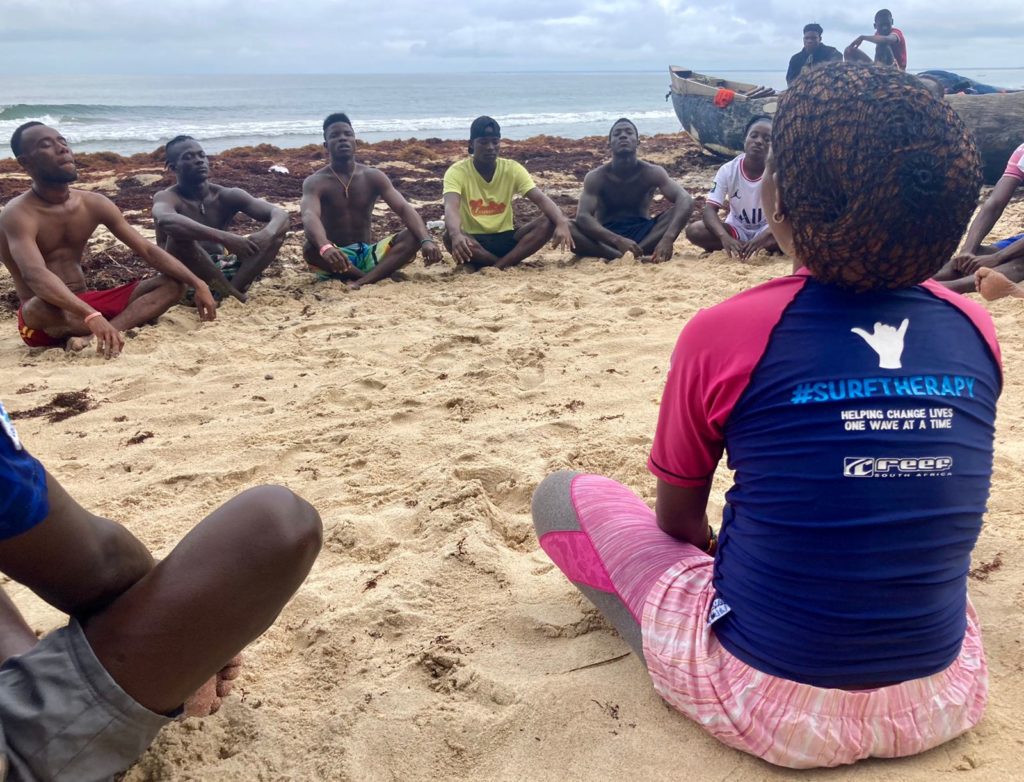
My hope for W4C Liberia is that it will grow wide and strong” says Alice, spreading her arms out wide as if she is embracing the whole country. “I want people to know they can rely on us. I want the government and society to know we have a good service to offer and that they can use us for good. I wish that if people are feeling things are difficult, they know they can come to W4C, and we can help them.
You can read more about Alice and her fellow African surfers in AFROSURF, a celebration of African surf culture. Proceeds of which support access to African surf mentors just like Alice along the African coastline.
